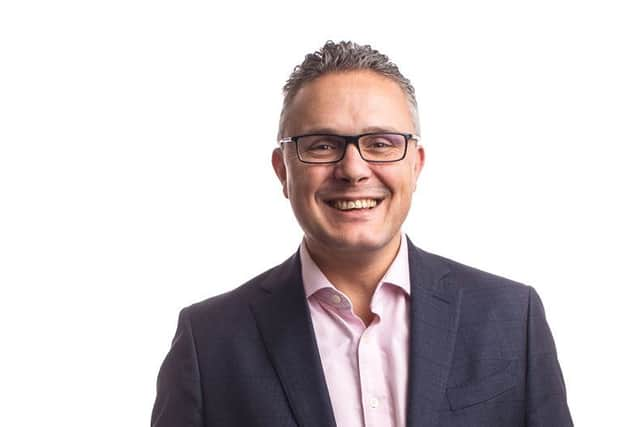Mike Regnier: We have to instigate a savings culture throughout the country


As someone leading a business which is responsible for looking after £29bn of people’s money, you might expect me to say that.
But I think it’s in everyone’s interests that more people save because the low proportion of saving has major consequences at an individual, economic and social level.
Advertisement
Hide AdAdvertisement
Hide AdBy our calculations almost 11m people in the UK aged 16 to 64 do not save, 7.5m of whom are in work. As a nation, we’re teetering uncomfortably above the relegation zone in the European savings league table, sitting between Portugal and Latvia with 4.5 per cent of gross household disposable income being put away. For comparison, Germany’s average is 17.3 per cent putting it third, while Luxembourg and Sweden take the top spots with 22 per cent and 17.6 per cent respectively.


For businesses, money worries can reduce workers’ effectiveness which naturally has an impact on productivity levels.
All employers have a duty of care to their people and I would suggest that extends to protecting their financial wellbeing. One of the first steps we have taken, and which all businesses can take, is to embrace that responsibility and be open about the challenges: research among our own colleagues last year showed 12 per cent have no savings at all and 7 per cent were kept up at night because of concerns over finances.
That is lower than the national average but still represents a fair chunk of our workforce. To address that we’ve introduced a financial well-being programme, and worked alongside Salary Finance to introduce a new direct-from-salary savings option to give our colleagues a new way of putting money away. We’ve won awards in recognition of the work we’ve done and we’ll be working to make the cost that financial worry has on industry crystal clear so every employer is aware of the opportunity to make a difference.
Advertisement
Hide AdAdvertisement
Hide AdSocially we live in a world of instant fulfilment. We stream films at the touch of a few buttons. We order shopping online to be delivered within hours. We extend our credit card limit in seconds.


I’m not highlighting these like someone who thinks the world is spinning too fast and wants to get off; advances in technology are both inevitable and largely a force for good. But it’s important to remember quick decisions can have long-lasting financial consequences.
Saving by contrast is about deliberately taking time to reach a bigger goal, and doing it in small, incremental stages. That might make it feel like a throwback pastime but it is more vital than ever. Yet because day-to-day saving has an image problem, nobody wants to be the flag bearer for it. Well, we do, and we intend to shed light on the kind of pressures people feel to spend before saving and provide practical tips and support to those wanting to start saving or get better at it. We want to create a save-first culture where people spend on the things they enjoy but can do it without relying on credit or debt.
As well as improving the access to saving through employers and addressing the cultural objection to saving, the third element of our plan is to improve financial capability. We want to ensure everyone can look after their money, which we’ll continue to do with our financial literacy lessons in schools across the country but by also extending the scheme to reach adults too.
Advertisement
Hide AdAdvertisement
Hide AdI can imagine a proportion of readers shouting “give us better interest rates and then we’ll save”. I completely understand why: while we and other building societies continue to offer a better average return than the high street banks, on the whole savers are receiving a fraction of the interest they got pre-economic crisis.
But the Financial Conduct Authority’s Financial Lives survey showed among non-savers in work, only 13 per cent said it was due to low interest rates. And we can’t ignore the fact we are operating in what the Bank of England Governor Mark Carney called the ‘new normal’ where interest rates are low and staying low. As a country we must adapt to that and look beyond savings solely as a means of making those who are already comfortably off even better off, and think of it as a natural thing for everyone to do when they can afford it.
We’re committed to getting the UK saving and have set a target: cut the number of non-savers by 1.8m over the next five years. We want other businesses, Government and non-savers to join in to make sure saving isn’t just a temporary resolution for a new year, but an established good habit making people healthier, more productive and more resilient.